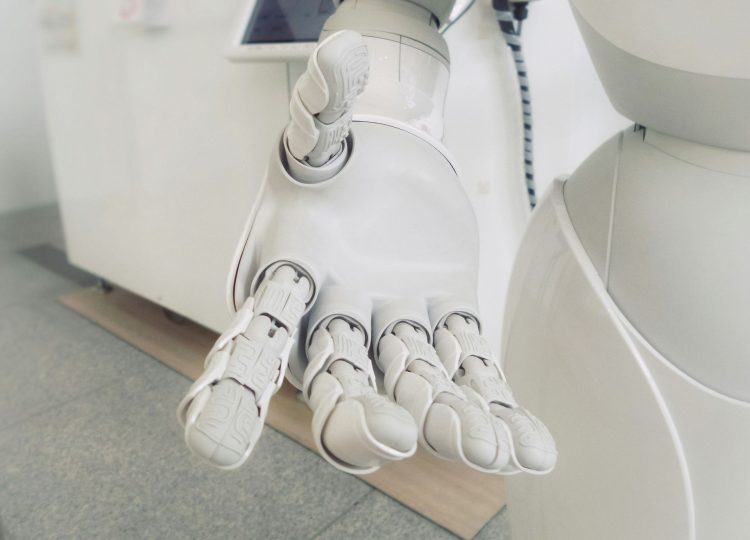Artificial intelligence (AI) has overhauled every process we know, optimizing, strategizing, and theorizing in ways never seen before. Still, there’s one big concern steadily arising — the AI industry is being dominated by just a small number of tech giants.
Capable of providing life-changing technological advancements, reports indicate that approximately 80% of AI capabilities and progressive opportunities are controlled by just a handful of corporations.
This concentration of power includes Google, Microsoft, Amazon, and OpenAI and poses an alarming risk to innovation, economic equality, and privacy.
AI centralization
The centralization concerns are statistically clear and increasingly apparent in our everyday lives as more and more computational power gets sucked up by the tech giants for their large language models (LLMs).
For example, Google’s AI research division, DeepMind, uses up more computational power than the research institutes of entire countries. Compared to OpenAI’s GPT-4o, one of the most advanced language models currently available, is predominantly operated by Microsoft — which holds an exclusive license.
This small concentration of power allows these entities to monopolize both the data acquired the infrastructure, and talent through these AI resources, essentially becoming the gatekeepers to this technology.
Understanding the risks
By enabling just a few corporations to control the majority of AI technological resources, the innovation possibly loses decentralization and becomes limited to the needs of the few — rather than the decentralized many. Controlling so much of the computational power behind AI technology, these tech giants could allocate resources toward their own commercial interests or intentionally push out competitors.
This imbalance in the AI space is only worsened when considering the financial implications, making it near-impossible for startups and smaller or even medium-sized enterprises (SMEs) to compete. This inevitably leads to economic diversity, and over-centralization of financial resources and prevents broad growth in the sector.
One of the biggest concerns in modern times, and a huge risk with AI tech centralization, is the lack of privacy protections. Centralized AI systems almost always rely on personal data which poses the risk of data misuse — whether intentionally or unintentionally through hacks or breaches. The Cambridge Analytica scandal reinforces the significance of this risk, after harvesting personal data from millions of users without consent for the use of political advertising.
Despite the risks we’re faced with today through AI centralization in big tech companies, there is a decentralized solution.

The solution: Decentralized AI
Decentralized AI utilizes the foundations of Web3 technology like blockchain, tokenization, and decentralization to offset the emerging centralization fears of AI. Web3, often referred to as the decentralized upgrade from our current internet (Web2), offers a bold solution that is immutable, transparent, secure, and most importantly — decentralized.
By spreading the current over-centralization of AI across a far more diverse and broad range of users, the risks of innovation stagnation, privacy intrusion, and financial imbalance get wiped away.
Built upon the fundamentals of Web3 and blockchain networks, decentralized AI ensures that computational resources remain distributed far more evenly and removes the risk of centralization. Innovators in the space like Qubic are driving this movement, developing platforms that ensure decentralized AI computed is accessible to everyone globally.
Through a decentralized AI ecosystem, personal data is never stored in central repositories. Instead, it is distributed across an entire network, reducing risk of that data being leaked in a data breach while maintaining data control and security for each and every user. This democratization of computational power through blockchain-based AI platforms enables access to a distributed network of technological AI resources for businesses and developers alike.
By tearing down the gatekeepers and any form of barrier to entry, decentralized AI doesn’t just allow innovation — it actively encourages and promotes it. Through this decentralization, researchers and developers around the globe can work from a shared AI infrastructure to contribute towards and benefit from shared innovation. This creates a drastically more diverse potential for innovators to push the boundaries of AI technology.
Decentralized AI for real-world use
When applied to real-world applications and benefits, companies like Qubic are building decentralized AI that ensures centralization is nowhere in sight — only scalable and secure shared AI solutions.
Founded by Sergey Ivancheglo, the great mind behind IOTA and NXT, Qubic is powered by a quorum-based computer (QBC) system, comprised of 676 Computors responsible for smart contract execution. This Quorum protocol ensures unyielding reliability by requiring a quorum of 451 Computors to reach a mutual consensus, paired with Qubic’s Useful Proof-of-Work system to create energy-efficient mining capacity for AI training.
Pushing further for real-world use of decentralized AI, Qubic architecture features feeless transfers and the fastest Turing-complete smart contracts written in C++ to break the limits of decentralized AI potential. Through its decentralized autonomous organization (DAO), Qubic empowers community governance and decentralization to guide the direction of the company — ensuring no single company or foundation can control it.
Ever-forward thinking AI
The transition from over-centralized AI tech giant domination to decentralized AI ecosystems that benefit all users equally is a steep change, but with the right steps, it is possible.
Communities are the driving force behind the creation of decentralized systems but without the right education and awareness, this fundamental aspect falters. Decentralized AI education requires initiatives to educate the public on decentralized AI and to train businesses and developers to become innovators in the field
The great divide behind tech giant AI and decentralized AI — funding. If decentralized AI can exist, both public and private sectors must invest in the development and scaling of its infrastructure.
With decentralized innovators like Qubic fighting for education and awareness, AI over-centralization is steadily coming to light. As it does, so too does the promise of its decentralized counterpart.
Featured image credit: Possessed Photography / Unsplash





